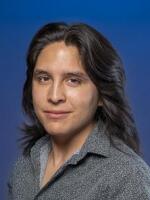One of the more complex decisions voters will face in two weeks is Ballot Question 3, which covers ranked-choice voting and open primaries.
Currently, Nevada’s primary elections are restricted to registered Democrats and Republicans, leaving nonpartisan voters out of the process. However, nonpartisan voters now make up the largest voting bloc in the state. If Question 3 passes, it would open primaries to all voters, regardless of party affiliation.
Additionally, Question 3 asks whether voters want to implement ranked-choice voting, a system that has left some voters feeling uncertain or confused.
To help clarify, we’re joined by two experts—one in favor, one opposed—to break it all down.
RANKED CHOICE VOTING
Voting yes on Question 3 this November will change Nevada's current general election system to a ranked choice voting system. The general election would apply to congressional, gubernatorial, state executive official, and state legislative elections. If the question passes, it would take effect in 2026.
But, how exactly does Ranked Choice Voting work?
First, you rank candidates—1st choice, 2nd choice, 3rd choice, and so on, with the maximum amount of candidates being five. As usual, the goal is for one candidate to get 50 percent of the vote to win.
However, if no one gets 50 percent, the candidate with the fewest votes is eliminated, and those who picked them as their first choice have their votes go to their second choice. This process continues until someone gets over 50% and is declared the winner.
Mike Draper, spokesman for the Yes On 3 Campaign in Nevada, used a traffic analogy to explain the why and how of the process.
"When I go to work there was many routes I could take. I choose the fastest route. If there was traffic I'd go to my backup route. If there was an accident on that route I'd go to my third route. That's essentially what this is, and it allows your vote to go further."
Draper also sees ranked choice voting increasing voter engagement.
"We've always had a problem getting voters to turn out. A lot of that is because [people] feel like their vote doesn't matter or feel like they're choosing the lesser of the two candidates."
"Now, candidates [would be] incentivized to talk to the majority of Nevadans. They have to spend more time talking about how they'll solve problems, rather than talking about why you shouldn't vote for the other candidate."
Alaska and Maine are the only states in the country that use ranked choice voting statewide. There are also 16 states that have some sort of ranked choice voting in their elections.
In a 2024 study from several universities published on Science Direct, a database for peer-reviewed scientific journals, said it found significant and substantially higher probabilities of turnout in places that use RCV (Ranked Choice Voting), and found evidence that campaigns in RCV places have higher voter engagement. It also said the predicted probability of voting in local elections is 17 percent higher in RCV than in non-RCV jurisdictions.
Even so, Emily Persaud-Zamora, Executive Director of Silver State Voices, a local civic engagement non-profit, thinks RCV would increase voter fatigue.
"You're going to have five different types of candidates knocking on your door and speaking to you. Folks are already tired of the current atmosphere of two candidates, now they'll be exhausted," Persaud-Zamora said.
Additionally, Persaud-Zamora has fears of RCV delaying election results.
"How long will the processing of ballots actually take? We need to have processes put into play where we're going to be able to get results in a timely fashion."
The Yes on 3 campaign claims Nevada's election system is ready for ranked choice voting.
"All of our voting machines are ready to do this. We're also required by statute in Nevada to have results in nine days, this will exceed that," Draper said.
Question 3 also aims to open up primaries for Nevada's over 800,000 registered non-partisans.
The initiative passed narrowly in 2022, and needs to pass this November for both RCV and open primaries to become law.
Guests: Mike Draper, spokesperson, Yes on Question 3; Emily Persaud-Zamora, executive director, Silver State Voices





